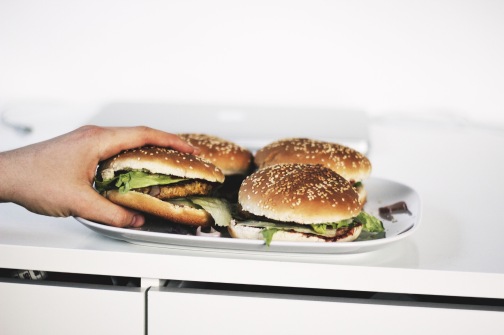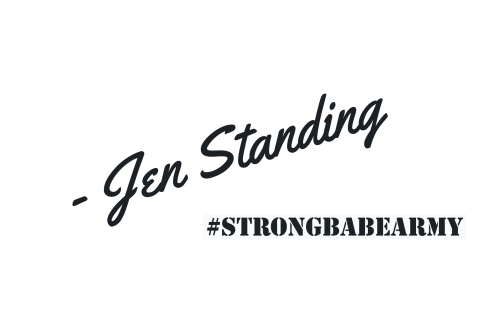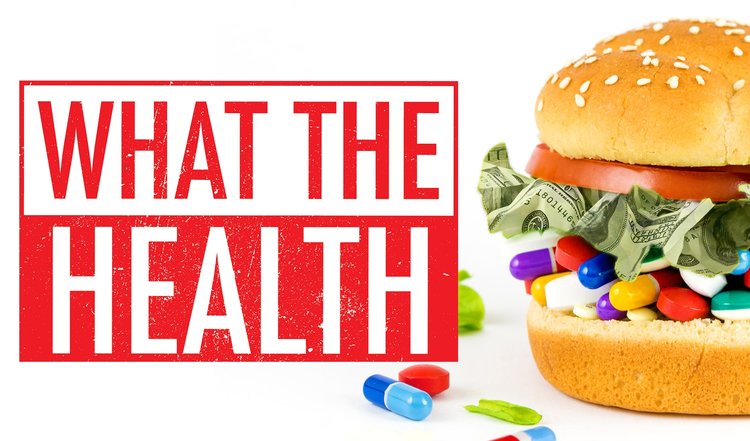To be honest, I have been avoiding doing this review. The first time I tried to watch ‘What the Health, I got no more than five minutes in. I was skeptical. It didn’t take me long to realize that this documentary had an agenda – and I wasn’t sure it would be, for me, worth watching.
But you guys seem to enjoy my reviews, and I wanted to do right by you. I also thought it would be a good opportunity for me to review a documentary that challenges me – in terms of my own knowledge and my beliefs.
I’m not here to attack the movie – in fact, it brought up some points that really resonated with me. In an effort to be fair, I’m going to be discussing this review a bit differently. Here’s how I’m gonna lay this one out for you: I’m gonna share with you some statements in the movie I didn’t agree with, and then I’m gonna hit you up with the stuff that I believe to be true.

Points I don’t agree with…
The makers of this movie share that processed meat is linked with cancer rates. What they kind of glaze over is the fact that this is specific to process meats – not all meat. And anyways, can’t the same thing be said about french fries? Aren’t those vegan? And what about dyes like tartrazine? That has been linked to cancer too. Harmful food is harmful food, no matter which way you slice it.
There is a comment by a doctor who says, and I quote “fat goes straight to your fat ” – um, I politely disagree, given that the newest research is actually contrary to this. Apparently carbohydrates, stored as glycogen, get either stored in the muscles or burned off. What if the storage is full, and you aren’t burning a calories during your latest 3 day Netflix binge. Fat DOES NOT make you fat. In fact, one study showed that high fat diets, like the Mediterranean diet, was healthy weight supportive.
Another contributor commented that meat is the culprit behind heart disease, not sugar, because “when you eat sugar, you don’t get inflammation right away“. What’s right away? Immediately after? The standard american diet is saturated with hidden sugars – and sugar is linked to inflammation.
When Kip Anderson said he ” found a study that eating just one egg a day can be as bad as smoking 5 cigarettes a day”, I couldn’t help but shake my head. Never in my wildest dreams could I connect eating one egg to the damage that five cigarettes can make. It’s like comparing oranges to beach balls. And again, the newest evidence does not support this analogy.

Points I do agree with…
Kip Anderson makes a great argument in stating that the standard American diet is linked with disease. The standard american diet is refined and highly processed, and also provides little nutritional value. I absolutely agree with that.
I enjoyed the aspect that was shared by the film makers about contaminated fish, as this is becoming a greater problem in today’s world. A lot of fish has become high in mercury and other toxic materials – so it is important to be cognizant of this and aware as to which kinds of fish are safest to eat.
One doctor stated that “cows milk is baby calf growth food”. That’s exactly what it is made for, and why it is produced. And I also agree it is important to keep this in mind when consuming dairy. It is meant to provide nutrients for a different species – one that is meant to grow quite a bit larger than a human.
The film makers are right – mass producers of conventionally raised meat have an agenda – and it’s not looking so good for consumers. There are so many processes of the aspect that are harmful. This can be anything from the overuse of antibiotics, pesticide and chemical run off that affects the environment, as well as harsh conditions under which the animals live.
Lastly, I enjoyed the portion that highlights the corporations providing funding to organizations like the American Heart Association and American Diabetes Association. We believe that these organizations have only the consumer’s health in mind – yet these groups are funded by corporations that promote a standard American diet. It does seem backwards.
Where I’m at…
Studies have found that the best ‘diet’ a patient dealing with serious health issues like obesity and diabetes can go on is one that achieves the best adherence. I don’t think that veganism is the best diet for everyone – although I agree it works wonders in achieving optimal health when done correctly for many people. But I believe the more important transition that North Americans are facing today is the one towards whole food, and not particularly towards veganism.
I believe in eating a diet consisting mostly of plants, and I’ve made the commitment only to buy ethically raised meat products. Plants are powerful and greatly underutilized in North American society. The quality of the meat products provided to consumers is absolutely an issue, one that I am glad to see is being brought to light here.
…but there’s no way you can convince me one egg is as bad as 5 cigarettes.
What are your thoughts? Have you seen the movie?

Works Cited
https://www.ncbi.nlm.nih.gov/pubmed/28708478
https://www.ncbi.nlm.nih.gov/pubmed/28671393

Leave a comment